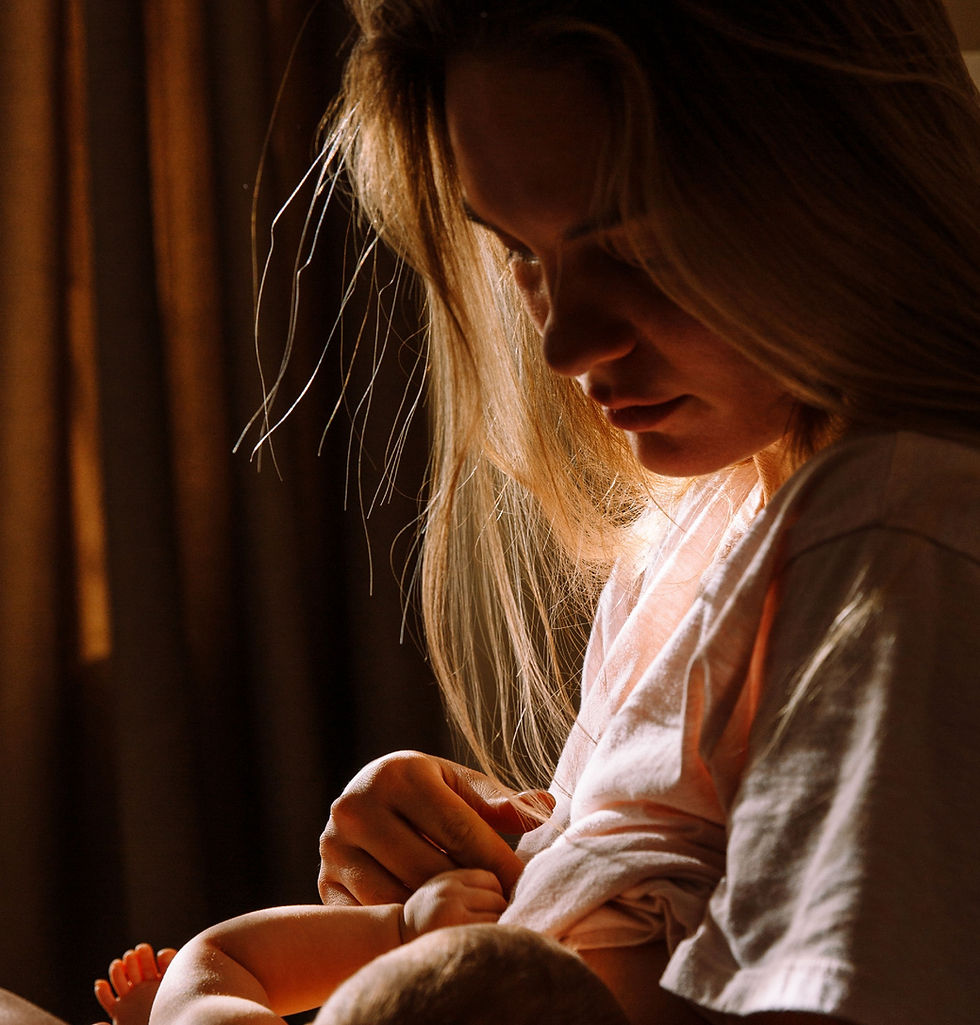Understanding Postpartum Depression: Symptoms, Treatment & Prevention
- Rochelle Kaikai

- Feb 12, 2024
- 3 min read

Adding a baby to your family is a life changing experience, which often brings about unexpected challenges. Change can be overwhelming and have an impact on the mental health of new parents. Some new parents may experience Postpartum Depression as they adjust to life with a baby.
Postpartum depression, also known as PPD, is a mental health condition that affects approximately 1 in 5 mothers and 1 in 10 fathers.
Some mothers may notice feelings of anxiety, sadness, hopelessness and extreme fatigue after having a baby. These changes often start within 1 to 3 weeks of giving birth. Fathers and adoptive parents can also be affected by PPD as they go through the emotional and social changes that come with parenting a newborn. If you or your partner are experiencing postpartum depression, know that it is not your fault. With support and treatment, many parents find they are able to manage symptoms and feel like themselves again.
Baby Blues vs. Postpartum Depression
What is the difference between baby blues and postpartum depression?
Baby Blues
70% of birthing parents experience baby blues in the few weeks following childbirth. They may experience frequent mood swings, prolonged bouts of crying, sadness, anger, and anxiety. This condition typically subsides within two weeks after birth. Emotional support from your partner, friends, and family can be helpful during this time.
Postpartum Depression
Postpartum Depression is a Perinatal Mood and Anxiety Disorder that can occur up to 1 year postpartum. Pregnant mothers may also experience prenatal depression during their pregnancy. Symptoms of postpartum depression are similar to that of baby blues, however they do not subside within a few weeks after birth. There are several treatment options for those with postpartum depression, the most common of which include support from a perinatal mental health therapist and medication prescribed by a doctor.
Postpartum Depression Signs & Symptoms
Parents experiencing postpartum depression often feel alone in their experience. PPD is quite common and there is hope for healing. It is important to know the signs and symptoms of PPD to keep an eye on yourself and your loved ones in the postpartum period. It is recommended to seek support and guidance from your healthcare provider as soon as possible if you are experiencing symptoms.
Common symptoms include:
Feeling sad, hopeless, and losing your sense of self-worth
Crying a lot
Not wanting to engage in hobbies or interests
Anger and irritability
Insomnia or the urge to sleep all day
Poor concentration, brain fog, or lack of focus
Low energy and motivation
Thoughts of harm to yourself or your baby
Difficulty bonding with your baby
Isolating yourself from others
Postpartum Depression Risk Factors
There are many factors that can contribute to the development of PPD. PPD presents differently in different people. There are several risk factors that can make it more likely you will develop PPD or other Perinatal Mood and Anxiety Disorders:
A history of depression or other mental health conditions
Birth trauma, difficulty with breastfeeding, or pregnancy complications
A family history of mood disorders
Going through fertility treatment
Experiencing stressful life events (financial issues, health crises, etc.)
Having suffered from premenstrual dysphoric disorder (PMDD) in the past
Lack of support or relationship strain
Parents of multiples or infants in the NICU
Thyroid conditions and/or diabetes
Postpartum Depression Treatment
Depending on the type and severity of symptoms, healthcare providers may recommend different treatment options. Common options include:
Prescription medication
Psychotherapy
Support group participation
Postpartum Depression Prevention
It is important we as a society support parents to help prevent the development of Perinatal Mood and Anxiety Disorders, such as PPD. Here are some ways you can support yourself or other new parents in your life:
Check in with your healthcare provider often throughout pregnancy and postpartum and let them know if you are not feeling like yourself.
Remember, you are not alone. Always ask for help from your partner, family members and friends when you need it.
Come up with a postpartum support plan ahead of time with the help of a perinatal mental health specialist.
Move your body, eat healthy meals, and rest as much as possible.
Take medication as prescribed (if applicable).
Find community with other parents and familiarize yourself with resources local to you (ex. EarlyON Centres, support groups etc.)
Conclusion
If you or someone you know is experiencing mental health challenges in pregnancy or postpartum we encourage you to reach out. We know how hard parenting can be, especially in the early days. You are not alone in this. You matter and so does your mental health.
Learn More:
Rochelle Kaikai MSW, RSW, PMH-C
226-400-8910
.webp)



Comments